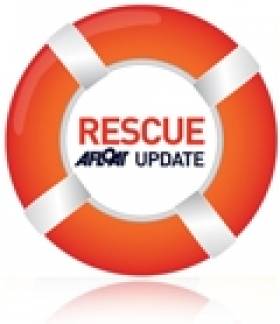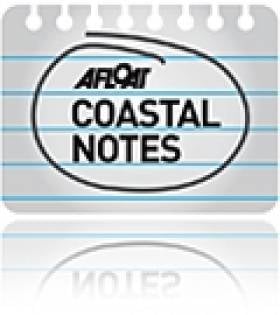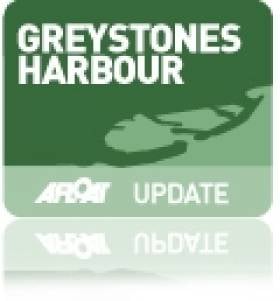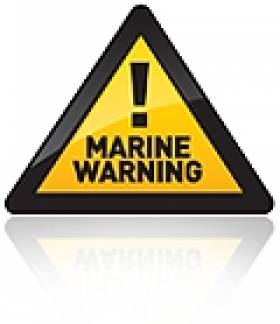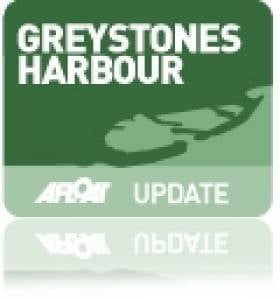Displaying items by tag: Divers
Search for Glandore Fishermen to be Wound Down
#NEWS UPDATE - The search for two fishermen still missing after their boat went down off West Cork nearly three weeks ago will be wound down next week, The Irish Times reports.
Search teams have been combing the area for any trace of Michael Hayes (35), skipper of the Tit Bonhomme, and crewman Said Mohammed (23) after the fishing vessel ran aground in rough seas near Adam's Rock, at the mouth of Glandore Harbour, on Sunday 15 January.
The bodies of Kevin Kershaw (21), Attia Shaban (26) and Wael Mohammed (35) were recovered in the days and weeks following the tragedy. Only one of the six-person crew - 43-year-old Abdul Mohammed – is confirmed to have survived.
As previously reported on Afloat.ie, last weekend saw more than 90 divers embark on an extensive search of the wreck site and the Glandore bay area, with hundreds more volunteers searching the coastline and on land.
Hull Damage To Blame for Stranded Divers
The accident that left four divers stranded off the Wexford coast last weekend was caused by damage to their boat's hull.
Divernet reports that the accident occurred when a section of tubing at the RIB's bow broke away from the hull.
The search operation, which included four RNLI lifeboats, an Irish Coast Guard helicopter and shore unit, was launched last Friday night when the group of divers failed to return to shore.
The divers were rescued at 6am on Saturday morning near the Saltee Islands, where they were found clinging to their upturned RIB.
Dramatic video of the divers' rescue was posted earlier this week on Afloat.ie.
GardaI Investigate U-boat Looting in Cork
Cork gardaí are investigating the looting of items from a First World War U-boat recently discovered off Roches Point.
The Irish Times reports that the submarine also appears to have been damaged by the illegal salvagers.
A spokesperson for the underwater archaeology unit of the Department of Arts, Heritage and the Gaeltacht confirmed that reports had come in from divers regarding disturbance of the wreck site - noting attempts to remove parts of the structure, and details of human remains.
Divers with the unit were expected to assess the site as soon as weather permits.
Items believed to have been taken include sailor's attire belonging to the crew of the 49-metre German vessel UC-42, which sank in 1917. The German embassy has indicated its "legitimate interest" in the preservation of the wreck.
The Irish Times has more on the story HERE.
There Is More To The Water Underneath
My time on the water has been spent 'on the surface,' but those who like to go underwater tell me the attractions of diving are magnificent and that Cork Harbour, my sailing base atop the water, is one of the great 'dive spots' on the Irish coastline.
There are many ways to enjoy the water, so I believe in encouraging everyone who takes parts in watersports. That is one way in which appreciation of the importance of the marine sphere can be advanced.
The Irish Underwater Council, Comhairle Fó Thuinn, known by its initials 'CFT,' promotes diving and is the national governing body for recreational underwater sports in Ireland. Through affiliated clubs, it provides training for diving and snorkelling.

"It's time to dive," the CFT says. "We provide the opportunity for recreation and fun in a friendly environment while maintaining a safe and cautious attitude to Irish waters. The basic objective of the training system is to demonstrate, teach and practice all the necessary abilities until the beginner is comfortable with the equipment and basic safety skills. There is no pressure of time limits and training is at the individual's own pace."
The CFT was founded in 1963 when underwater enthusiasts wanted to establish a national group which would organise and promote sport scuba diving and snorkelling. At that time there were six clubs around the country. The number has now expanded to 84.
I was talking in the past week to just one of those clubs - the Cork Sub Aqua Club which is encouraging more people to take up the sport. It has been in existence for 40 years and organises dives on Wednesday evenings during the Summer and on most Sundays throughout the year. There are visits to dive sites outside of Cork and wreck-diving is organised to suit ability and experience. Divers come from all ages and backgrounds, so there is a great opportunity if for anyone interested to get involved.
"We will begin training new recruits in January, so anyone who joins will be ready for open water by the Spring. No experience is necessary," the club says. "Our qualified instructors are waiting for newcomers and, for anyone already qualified, we say join and dive with us."
The photograph on this week's blog shows two divers enjoying their time in the water, even in this cold period of the year. Niall O'Regan from Monkstown in Cork and Ian Kelleher were diving off Roche's Point. They had a look at a trawler which sank in the area back in the mid-80s. The attraction of diving for them is "the great diversity of sea life to be found around the harbour and the quiet and tranquillity underwater in comparison to the hustle and bustle on land." That is a well-expressed sentiment which I like and encourages me to tell you that I am continuing with attempt to develop my idea for the establishment of an Irish maritime foundation. My thanks to those readers of this blog who Emailed me about it. Some good ideas have been put forward and more are always welcome.
For anyone interested you can get more information about the Irish Underwater Council by Emailing: [email protected] or about membership by Email to: [email protected]
You can Email me in response to items on this blog at: [email protected]
This article is reprinted by permission of the EVENING ECHO newspaper, Cork, where Tom MacSweeney writes maritime columns twice weekly. Evening Echo website: www.eecho.ie
Greystones Harbour Open Day Gives Chance to See Impressive Marine Works
This is a chance, says local councillor Derek Mitchell, to see what has been achieved behind the hoardings in the last two years. "All marine works will be finished in 2010 and it is impressive to see what has been achieved. Currently much of the earth stored on top of D'Arcys field is being moved to beside the new harbour and it is quite mucky which limits the area which the public can access. However it will be a good chance to see behind the hoardings" Mitchell told Afloat.ie.
The next stage will start in January and finish in December 2011 after which most hoardings will come down. This stage consists of the 4 storey Health Centre, public square and free clubhouses for the Sea Scouts, Rowers, Divers, Sailors and Anglers.
Full Moon Prompts Weekend Safety Warning
Spring Tides and an uncertain weather forecast can make this weekend more hazardous than usual.
Irish Water Safety is reminding boaters, sailors, surfers, divers and anglers that there is a full moon on Saturday so they need to be aware of spring tides for the weekend coupled with an uncertain weather forecast.
It is important to take a good weather forecast and to factor this in to their plans accordingly. In addition we wish to remind you of the shorter daylight hours and not to be too ambitious when passage planning over the weekend.
On average 153 people drown in Ireland each year so it is essential to wear suitable protective clothing and a properly serviced and fitted lifejacket when on the water and avoid taking unnecessary risks, especially taking alcohol or drugs as approximately 30% of all drowning victims will have consumed alcohol.
Anglers will be at risk and non nationals in particular should be extremely vigilant as the Atlantic swell is dramatically different to that experienced on the relatively calmer Baltic Sea to which many are accustomed.
It is essential that parents or responsible adults supervise their children at all time when near water.
Walkers should remain alert and stay well away from the edge of ordinarily familiar waterside pathways due to the risk of stranding as a result of the high tides.
Remember your lifeline in an emergency is 999 and 112 therefore carry a mobile phone and ask for the Marine Rescue.
If you discover missing or found Ringbuoys then log on to www.ringbuoys.ie to report them, remember, "a stolen ringbuoy is a stolen life"
Greystones Harbour Facilities to be Complete by End 2011
Tuesday nights Greystones Town Council meeting was informed by Greystones harbour developer Sispar that the major work on the seawalls would be complete at the end of November 2010.
Following this, construction of the Health Centre, public square and Community buildings for the Sea Scouts, Rowers, Anglers, Divers and Sailors will start in January and should be complete in December 2011.
The hoardings which have blocked the view of the harbour and proposed marina will be taken down as these works are completed in 2011.
Local councillor Derek Mitchell (and a Ruffian keelboat champion) told Afloat.ie: "I welcome this as Greystones had been trying to get the harbour rebuilt for over a hundred years and this will create the best Community Harbour in Ireland".
Councillor Mitchell adds "The developer has applied to change some of the housing and add 34 houses to the North. Wicklow County Council is to vote on this in December. These houses may not be built yet, depending on the housing market, but access will be provided across the site to the North Beach and the new swimming beach there"
"The meeting was also told that the loan would be going in to NAMA, as all loans will, however this is not expected to make any difference to the project", he added.
Councillors asked for more Community tours so that people could see what has been achieved.




























